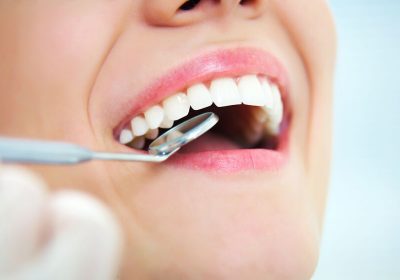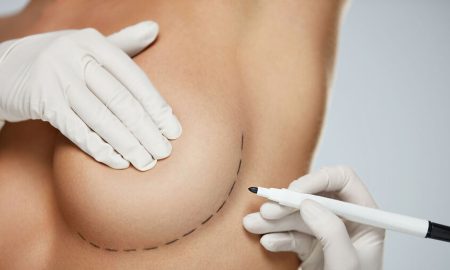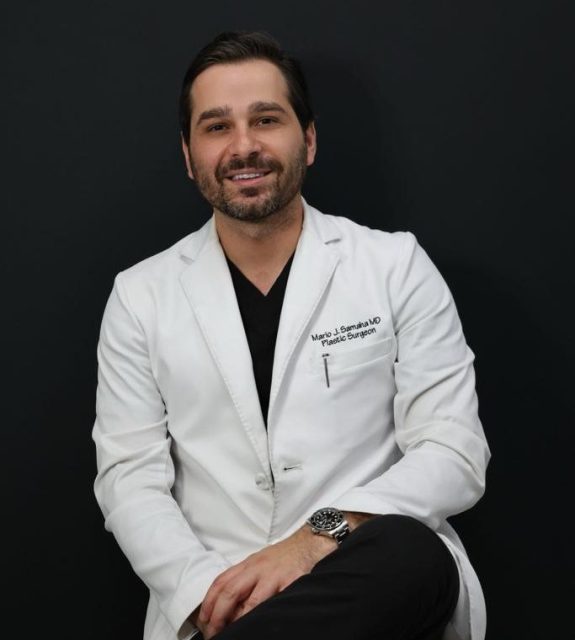Dr. Baruch Tetri’s provides a uniquely patient-first approach to treatment and planning. His work today reflects nearly two decades of training, education and successful practice. These combine in truly state-of-the-art treatment and doing more in less time. Haute MD Expert Dr. Tetri dishes on an extremely common dental issue, teeth grinding.
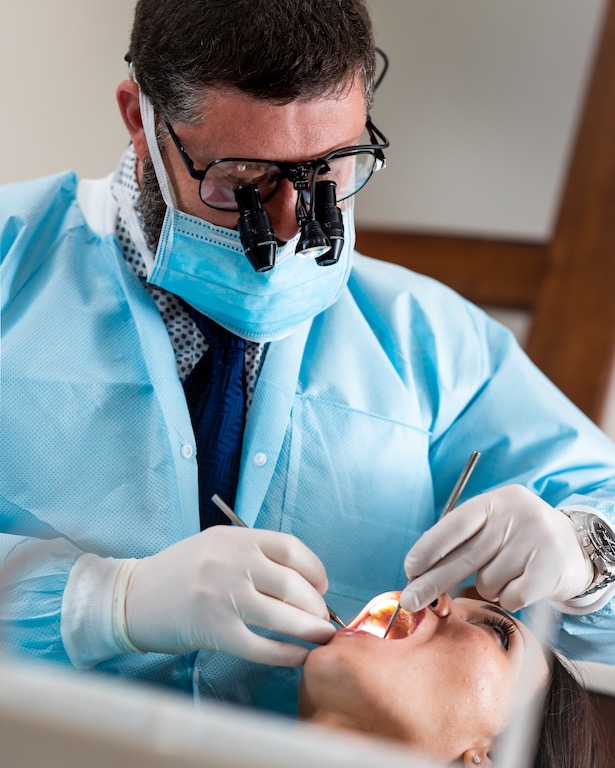
Each year, nearly 30 million Americans suffer from Bruxism: chronic grinding of the teeth. Your mouth, gum, and tooth health impacts your overall health throughout the rest of your body.
Grinding your teeth can result in a wide array of problems. The most common symptoms are headaches, jaw pain, crooked teeth and tooth damage. Over the course of a lifetime, grinding your teeth will cause more damage if not corrected.
For those who suffer from these symptoms and cannot find the right treatment, Dr. Baruch Tetri is changing the way teeth grinding is treated. With a personalized approach, Dr. Tetri takes the time to learn about his patient’s daily habits - which is usually where the issue stems from.
Dr. Tetri has been working with patients who suffer from grinding their teeth for almost two decades. He deeply understands what causes this disorder, and how to treat it so that it no longer plagues his clients.
With the approach of a visionary, Dr. Tetri’s proprietary processes for treating teeth grinding comprise a wide array of traditional methods - from microsurgery to cosmetic reconstruction - in order to find the best solution for each client on an individual basis.
His approach and experience is built upon decades of education and training. Earning his DDS in 2006 from NYU, he yearned for more - leading to a post-graduate degree in 2009. Today, Dr. Tetri offers a wide variety of preventative and restorative treatments for his patients - focusing intently on an experience that is entirely tailored to their specific needs.
For the past 15+ years, Dr. Baruch Tetri has been studying and working with patients suffering from teeth grinding in order to change their lives for the better. His unique, patient-focused approach has given him nearly unrivaled insight into what causes grinding, how it affects people, and what the best solution is to your teeth grinding problem.
Whatever your symptoms, however severe, Dr. Baruch Tetri has the answers. Here, he will share with you some insights that can help you find the best solution to your jaw pain as a result of grinding your teeth.
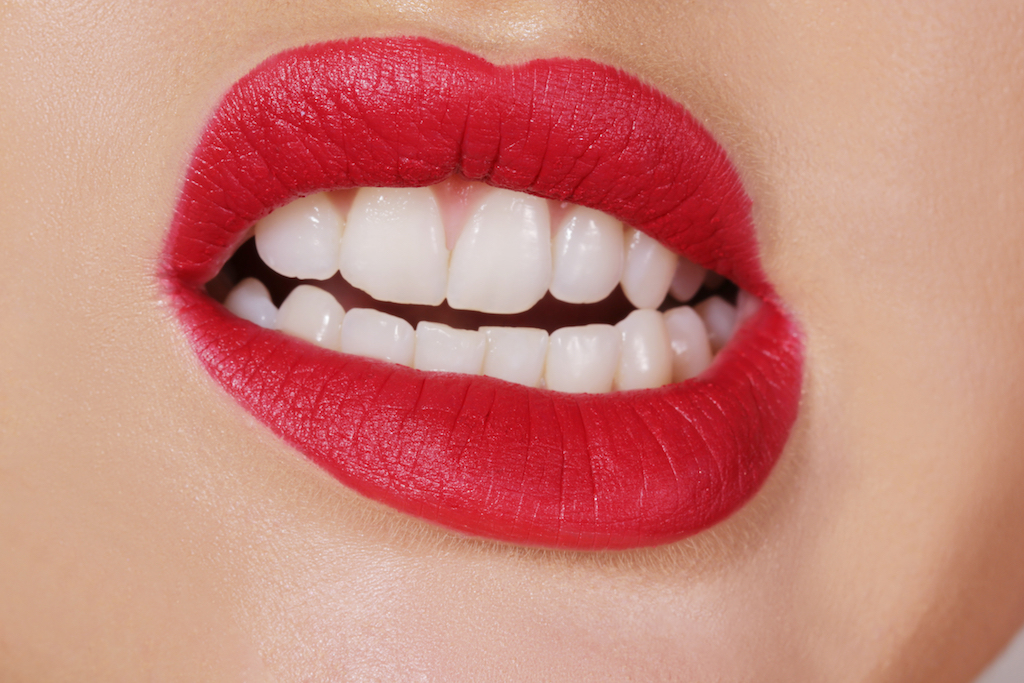
Teeth Grinding: What You Should Know
For most Americans, teeth grinding happens at night. For others, it happens during the day while sitting, or perhaps while dealing with stress, anxiety, or pain and discomfort.
Because of this, grinding your teeth can tend to compound on itself - meaning you grind more because of the pain and discomfort you are in from already grinding your teeth.
Whether day or night, teeth grinding is an unconscious action, which means you likely don’t realize you are doing it - until the symptoms start to manifest. This can make it hard to quit, and even harder to detect and link to the pain you’re experiencing.
Understanding the causes of teeth grinding and the symptoms of it may help you uncover what might be causing that daily discomfort in your life. Dr. Tetri’s expertise helps reveal the true causes of teeth grinding, and what symptoms you might experience on a regular basis if you’re grinding your teeth.
What Causes Teeth Grinding?
In order to overcome teeth grinding and all the pain that comes with it, you first need to understand what causes it. This will help you learn what actions or habits may be causing your problem, and bring you one step closer to a solution.
-
Stress and Anxiety
The most common reason that people grind their teeth is stress and anxiety. When you are undergoing stress, it can manifest while you sleep in the form of jaw clenching and teeth grinding. This grinding then adds to your stress and anxiety levels throughout the day, causing a cycle that can be nearly impossible to get out of.
-
Sleep Disorders
Sleep disorders can lead to serious consequences, one of which is teeth grinding. Severe conditions like sleep apnea can cause regular and chronic teeth grinding while you sleep - leading to jaw problems, tooth problems, and more.
-
Abnormal Bite
An abnormal bite can lead to teeth grinding. When you have an abnormal bite, the way your jaw rests while you are sleeping can be slightly off - forcing your teeth to grind against one another throughout the night.
-
Missing/Crooked Teeth
Missing teeth or crooked teeth can result in teeth grinding. Perhaps you had an accident that resulted in a lost or chipped tooth, or additional oral surgery caused your teeth to shift.
What Problems Are Caused By Grinding Your Teeth?
No matter the cause of your condition, grinding your teeth leads to a handful of very unpleasant and consistent problems. If left untreated, it can cause serious damage and long-term pain.
Headaches/Migraines
If you wake up with headaches, and have no other identified cause of them, it could be the force of grinding your teeth in your sleep.
If left untreated, regular headaches can quickly worsen to the point of migraines. Recent scientific studies have shown that up to 90% of migraines are caused by grinding and clenching of the teeth. If you suffer from severe migraines, your teeth might be the cause.
Damage to Tooth Structure
Grinding your teeth can cause damage to your tooth structure which, long-term, damages the entire structure of your jaw and your teeth.
This leads to an increased risk of fracturing, breaking, and damaging your teeth as you continue to wear them down. Over the years, this can lead to gum disease, tooth problems, root canals, and more.
Higher Risk of Root Canals
If you damage your teeth and fracture them, it can leave some of the deeper parts of your jaw exposed as well as the pulp in your teeth. This leads to a risk of infection and subsequently, the need for a root canal.
Loose Teeth
Damaged tooth structure can cause some of your teeth become looser over time. Loose teeth can change your facial bone structure, even if they haven’t fallen out. They are susceptible to falling out which can lead to infection, further damaging your bone structure, and even worsening bruxism.
As loose teeth continue to change your jaw structure, they can continue to worsen your Bruxism, leading to even more tooth and jaw problems down the line.
Receding Gums
As your teeth grind away and the structure of your jaw changes, it leaves you susceptible to receding gums. This means that your gum tissue and bone starts to diminish.
Without this vital tissue and muscle to hold your teeth in place, your jaw structure and tooth positioning starts to change rapidly - leading to a plethora of oral hygiene problems and discomfort. You only get one set of teeth and one set of gums so you have to take care of them.
Temporomandibular Joint Syndrome (TMJ)
Temporomandibular joint syndrome (TMJ) is a disorder that impacts your nerves and your jaw muscles, as a result of injury to the joint. This joint is the connection point between your skull and your jaw bone. When you first start grinding your teeth, it can cause inflammation in the joint. Over time, you might notice that it's painful when you chew, that your jaw pops, clicks, or crackles - these could be signs of TMJ syndrome.
As you continue to grind your teeth unchecked, this inflammation gets worse and can eventually cause nerve inflammation, swelling on either side of your face, problems with your hearing, severe headaches, even migraines.
Long-term, if you let the condition continue, you cannot only cause regular and severe inflammation but serious injury, such as dislocation of the joint. Don’t let it get to this point. Then it becomes more than a simple matter of getting a mouth guard or having some dental work done - you have to have the joint put back in place through surgery.
Changes in Posture for the Worse
With Bruxism, you might not realize it, but your posture changes over time as a result of grinding your teeth. If left unchecked, teeth grinding changes the position of the head, which alters the position of your shoulder, moving them down. These moves change your entire posture.
When Should I See My Dentist About Teeth Grinding?
Bruxism can only be diagnosed by a dentist, and going to your regular checkups will help your dentist diagnose the condition before the damage is done.
If you have missed a few regular cleanings, it is important to head to a qualified dentist as soon as you notice any of the symptoms of teeth grinding.
Even if your dentist does not diagnose you with Bruxism, it’s good for you to notify them of the symptoms you are experiencing so that they can have them documented for the future. It could help them find other tooth problems, or check more regularly for signs of Bruxism - to help prevent damage in the future.
If you’re concerned about your teeth grinding or aren’t quite sure yet whether you grind your teeth, see an experienced specialist like Dr. Baruch Tetri. You deserve an expert who can deliver a personalized experience that can get you the relief, and long-term results you need to live a life without discomfort.






